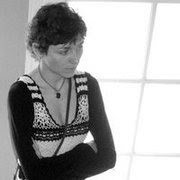Advancement to candidacy: this is the next major milestone on my academic path. Once a Ph. D. student has advanced to candidacy, he or she is called a Ph. D. Candidate. The small change in title comes with an appropriately-small increase in salary. But the real benefit is knowing you are one step closer to finishing.
To advance to candidacy, a student must prove to a committee of professors that she is ready. She needs three things: a thorough understanding of the relevant work, a clear idea of what her work will entail and how it will contribute to and further the field, and a step-by-step plan, complete with a calendar, of everything that needs to be done to achieve the goal.
The advancement to candidacy is like a contract between the student and her advisor. They agree on the amount of work that needs to be done, its scope, and the deadlines of its components. Once all the work proposed by the advancement process is done, the student writes the dissertation, and obtains the Ph. D.
Here in my department, the advancement to candidacy is coupled with the qualifying exam. That is, the committee members and anyone else that wants to can come and grill the advancement student asking sometimes relevant, sometimes off-the-wall questions about all aspects of science and engineering. (I can see it now. "How many cross-chip pins will your design have?" But my design is a baby. "So, how many pins?") Once advancement is over, the student (rather, the candidate) is deemed qualified to proceed with her research.
I am at the stage of putting together an advancement committee. The chair of the committee needs to be a tenured faculty member from my department. I did the rounds, and was met with some resistance. Like The Little Prince, I traveled between planets and encountered different folk.
Professor A, the first professor I visited on my journey, was standing in the middle of his office, playing with a red laser.
"Professor A," I greeted as I approached him, "would you be my advancement chair?"
"What is your research in?" he replied.
"Well, it's hard to say... it's got to do with serious games, babies, and human-computer interaction."
"I do research with blind people and technology." He paused. "Will your babies be blind?"
"No, sir," I said.
Next, I traveled downstairs to Professor B.
"Dear Professor B!" I exclaimed. "How nice you look today."
"Hello," he said, not turning from his computer, his back to me.
"I was wondering if you would chair my advancement committee."
"What is your research in?" he asked, turning towards me and folding his hands in his lap.
"Babies... serious games... some HCI. Pregnant ladies," I replied, leaning on the door post.
"I don't have any kind of experience in any of that stuff. Can't you ask someone else?"
"But I want you!"
"How about Professor A? That is so much more his area."
"I asked Professor A. He says he only works with blind people."
"Pregnant ladies? So poke their eyes out," he said, turned back to his computer, and resumed typing.
Finally, I traveled virtually, via e-mail, to my advisor, and reported my findings.
"Perhaps," she said sweetly, "it's time to switch departments."
In the other department, there are other people that do, sort of, what I'm working on. This is an option. But it's a sad option, because it compounds my long-standing identity crisis. Am I turning my back on my beloved department?
Deep inside, I know that what I am feeling is just psychological reactance. People have a hard time letting go of options --- even if they never intend to exercise them. I do not feel ready to let go, to switch to an alien department, to have a different title attached to my name, to redefine myself as a student.
And so, here I am: married white female seeks advancement committee chair.
One woman's path through doula training, childrearing, and a computer science Ph. D. program
Tuesday, August 3, 2010
Subscribe to:
Post Comments (Atom)




No comments:
Post a Comment